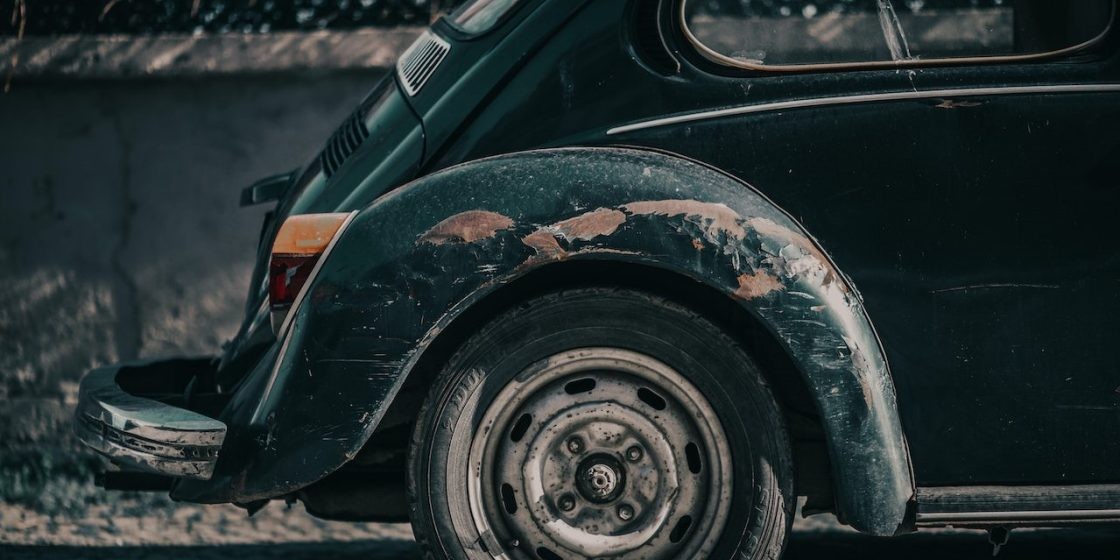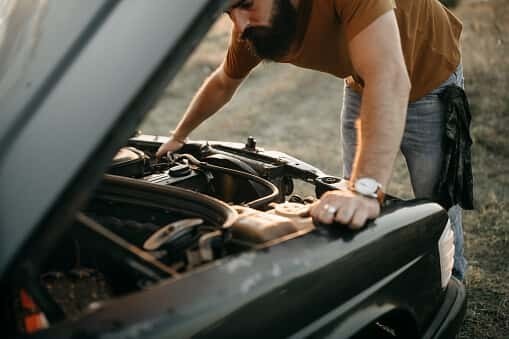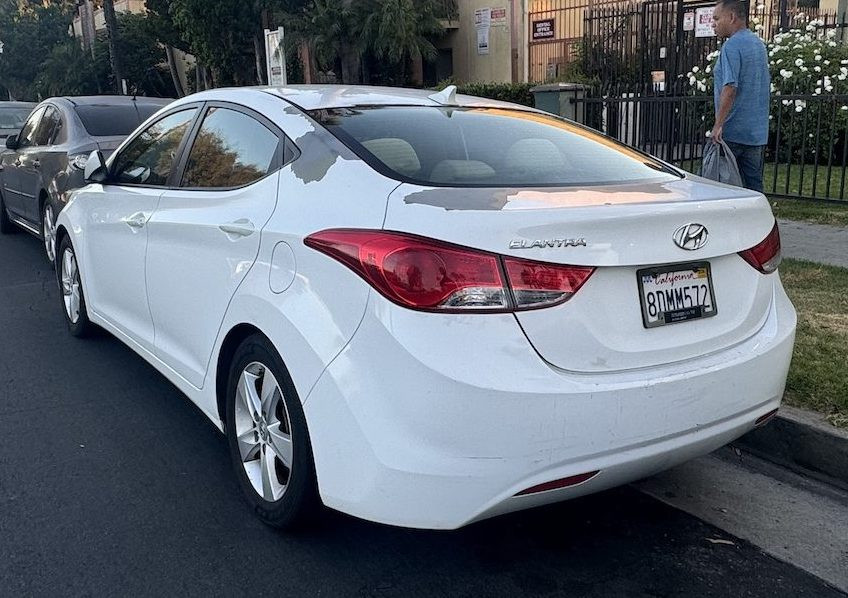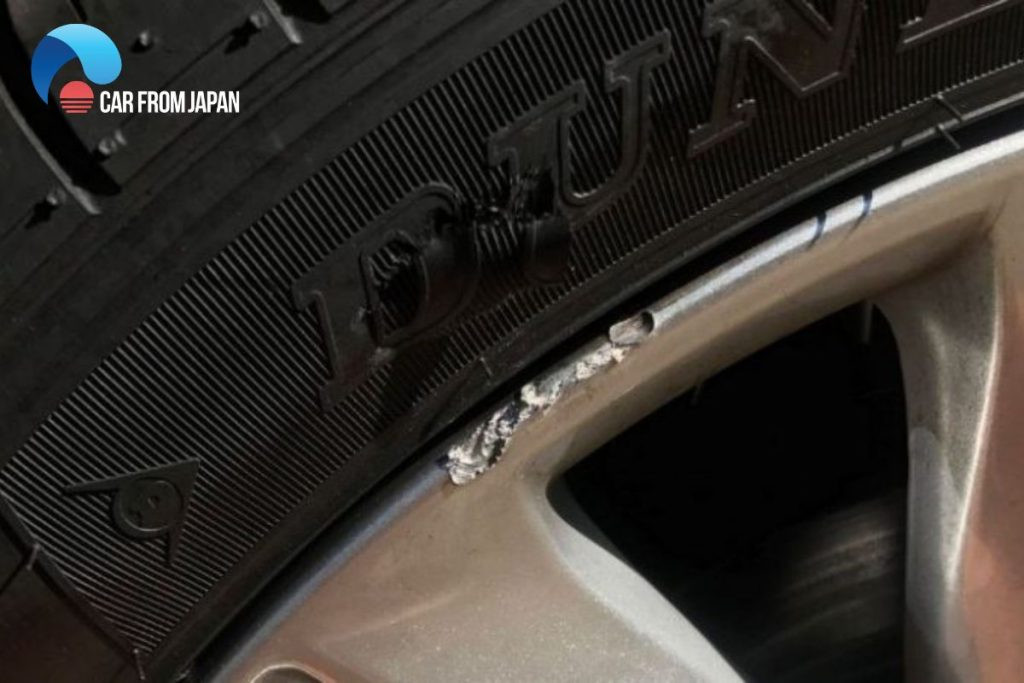How Much to Fix Scratched Car: Costs & Solutions

How Much To Fix Scratched Car? Discover the costs associated with car scratch repair and explore effective solutions to restore your vehicle’s appearance. CARDIAGTECH.NET offers insights into scratch assessment, repair options, and preventative measures to keep your car looking its best. Explore paint correction, scratch removal, and car detailing tips.
1. Understanding Car Scratches and Their Impact
Car scratches are an inevitable part of vehicle ownership. From minor scuffs to deep gouges, these blemishes can detract from your car’s appearance and potentially reduce its resale value. Whether caused by stray shopping carts, wayward tree branches, or accidental keying, understanding the different types of scratches and their impact is the first step in determining the best course of action. Let’s dive into the nature of car scratches and the factors influencing repair costs. CARDIAGTECH.NET equips you with the knowledge to assess and address car scratches effectively.
1.1. The Anatomy of a Car’s Paint Job
Before delving into scratch repair, it’s important to understand the layers of a car’s paint. Most modern vehicles have a multi-layer paint system consisting of:
- Clear Coat: The outermost layer, providing a glossy finish and protection against UV rays and environmental elements.
- Base Coat (Color Coat): This layer provides the vehicle’s color.
- Primer: This layer promotes adhesion between the metal body and the color coat, providing corrosion resistance.
- Metal Body: The underlying metal structure of the car.
 car scratches | Breast Cancer Car Donations
car scratches | Breast Cancer Car Donations
1.2. Types of Car Scratches
The depth of a scratch determines the extent of damage and the repair method required. Here are the common types of car scratches:
- Clear Coat Scratches: These are the most superficial scratches, affecting only the clear coat layer. They often appear as fine lines or swirl marks.
- Base Coat Scratches: These scratches penetrate the clear coat and reach the base coat layer, exposing the car’s color.
- Primer Scratches: These are deeper scratches that cut through the clear coat and base coat, reaching the primer layer.
- Deep Scratches: These are the most severe scratches, penetrating all layers of paint and exposing the bare metal. They require extensive repair to prevent rust and corrosion.
1.3. Factors Influencing Repair Costs
Several factors influence the cost of car scratch repair:
- Scratch Depth: Deeper scratches require more extensive repairs and higher costs.
- Scratch Size: Larger scratches necessitate more material and labor, increasing the cost.
- Location: Scratches in hard-to-reach areas or near body lines may require specialized techniques and higher costs.
- Paint Type: Some paint types, such as metallic or pearl finishes, are more challenging to match and repair, leading to higher costs.
- Repair Method: The chosen repair method, whether it’s a DIY touch-up, professional paint correction, or panel replacement, affects the overall cost.
- Labor Rates: Auto body shops and detailing services have varying labor rates, impacting the final cost.
- Geographic Location: Repair costs can vary depending on your geographic location, with urban areas typically having higher rates.
2. Estimating the Cost of Car Scratch Repair
Determining how much to fix a scratched car involves assessing the damage and considering various repair options. Here’s a breakdown of estimated costs for different types of scratches:
2.1. DIY Scratch Repair Kits
For minor clear coat scratches and scuffs, DIY scratch repair kits offer a cost-effective solution. These kits typically include:
- Scratch remover compound
- Applicator pads
- Microfiber cloths
DIY kits can effectively remove superficial scratches and restore the clear coat’s shine.
Estimated Cost: $20 – $50
Pros:
- Affordable
- Easy to use
- Suitable for minor scratches
Cons:
- Limited effectiveness on deeper scratches
- May require multiple applications
- Can cause further damage if used incorrectly
2.2. Professional Paint Correction
Professional paint correction involves using specialized tools and techniques to remove scratches and imperfections from the car’s paint. This process typically includes:
- Washing and decontamination
- Clay bar treatment
- Multi-stage polishing
- Wax or sealant application
Paint correction can effectively remove clear coat and light base coat scratches, restoring the paint’s original gloss and clarity.
Estimated Cost: $150 – $500 per panel
Pros:
- Effective scratch removal
- Improved paint clarity and gloss
- Long-lasting results
Cons:
- Higher cost compared to DIY options
- Requires professional expertise
- May not be suitable for deep scratches
2.3. Spot Painting
Spot painting involves sanding down the damaged area, applying primer, and blending the new paint with the surrounding area. This method is suitable for scratches that have penetrated the base coat or primer.
Estimated Cost: $300 – $800 per panel
Pros:
- Effective for deeper scratches
- Restores the paint’s color and finish
- More affordable than full panel repainting
Cons:
- Color matching can be challenging
- Blending may not be seamless
- May require multiple coats
2.4. Panel Repainting
Panel repainting involves removing the damaged panel, sanding it down, applying primer, and repainting the entire panel. This is the most extensive repair option, suitable for deep scratches, rust damage, or extensive paint damage.
Estimated Cost: $500 – $1500 per panel
Pros:
- Restores the panel to its original condition
- Ensures a seamless color match
- Provides long-lasting protection
Cons:
- Highest cost option
- Requires specialized equipment and expertise
- May affect the car’s resale value
2.5. Bumper Repair
Bumper scratches are common due to their proximity to potential hazards. Repairing bumper scratches can involve:
- Sanding and filling
- Priming and painting
- Texturing (if necessary)
Estimated Cost: $200 – $700
Pros:
- Restores the bumper’s appearance
- Prevents further damage
- Maintains the car’s aesthetic appeal
Cons:
- Cost can vary depending on the severity of the damage
- Color matching is crucial
- May require specialized tools
3. DIY vs. Professional Scratch Repair: Making the Right Choice
Deciding between DIY and professional scratch repair depends on your skills, budget, and the severity of the damage. Here’s a comparison to help you make the right choice:
| Factor | DIY Scratch Repair | Professional Scratch Repair |
|---|---|---|
| Scratch Severity | Minor clear coat scratches and scuffs | Deeper scratches, base coat damage, primer exposure |
| Skill Level | Basic automotive knowledge | Professional expertise |
| Tools & Materials | DIY scratch repair kit | Specialized tools, equipment, and materials |
| Cost | $20 – $50 | $150 – $1500 per panel |
| Time | 1-2 hours | 1-3 days |
| Quality | Good for superficial scratches | Excellent, seamless finish |
| Longevity | Temporary solution | Long-lasting |
When to Choose DIY:
- The scratches are minor and superficial.
- You have basic automotive knowledge and are comfortable working on your car.
- You’re on a tight budget and want a quick fix.
When to Choose Professional Repair:
- The scratches are deep and have penetrated the base coat or primer.
- You lack the skills or tools to perform the repair yourself.
- You want a seamless, long-lasting repair.
- You’re concerned about maintaining your car’s value.
4. Steps to Take Before Getting a Scratch Repaired
Before taking your car to a professional or attempting a DIY repair, follow these steps:
4.1. Assess the Damage
Carefully examine the scratches to determine their depth, size, and location. Use a magnifying glass and good lighting to get a clear view.
4.2. Clean the Area
Thoroughly clean the scratched area with soap and water to remove dirt, grease, and debris. Dry it with a microfiber cloth.
4.3. Take Pictures
Take clear pictures of the scratches from different angles. These photos will be helpful for insurance claims or when getting quotes from auto body shops.
4.4. Get Multiple Quotes
If you’re considering professional repair, get quotes from multiple auto body shops. Compare their prices, services, and warranties.
4.5. Check Online Reviews
Research the reputation of auto body shops by reading online reviews and testimonials. Look for shops with positive feedback and a history of quality work.
4.6. Consider Insurance Coverage
Check your car insurance policy to see if scratch repair is covered. If the scratches were caused by an accident or vandalism, you may be able to file a claim.
5. CARDIAGTECH.NET: Your Partner in Automotive Excellence
At CARDIAGTECH.NET, we understand the importance of maintaining your vehicle’s appearance and performance. Our comprehensive range of automotive tools and equipment empowers you to tackle scratch repair and other maintenance tasks with confidence.
5.1. Automotive Tools for Scratch Repair
CARDIAGTECH.NET offers a wide selection of automotive tools for scratch repair, including:
- Polishing Machines: Achieve a flawless finish with our high-quality polishing machines, designed for efficient and effective paint correction.
- Sanding Blocks: Prepare surfaces for painting with our durable sanding blocks, ensuring a smooth and even finish.
- Paint Sprayers: Apply paint evenly and precisely with our professional-grade paint sprayers, designed for seamless color matching.
- Detailing Brushes: Clean hard-to-reach areas with our detailing brushes, ensuring a thorough and meticulous repair.
- Scratch Repair Kits: Our scratch repair kits provide everything you need to tackle minor scratches and scuffs, saving you time and money.
5.2. Equipment for Professional Auto Body Shops
CARDIAGTECH.NET is your trusted partner for equipping professional auto body shops with top-of-the-line equipment, including:
- Frame Machines: Restore vehicle frames to their original condition with our advanced frame machines, ensuring structural integrity and safety.
- Welding Machines: Our welding machines offer precise and reliable welding for various automotive repairs, from panel replacement to chassis reinforcement.
- Paint Booths: Create a controlled environment for painting with our state-of-the-art paint booths, ensuring a flawless and durable finish.
- Lifting Equipment: Safely and efficiently lift vehicles with our heavy-duty lifting equipment, designed for easy access and maneuverability.
- Diagnostic Tools: Diagnose and troubleshoot automotive issues with our advanced diagnostic tools, helping you identify the root cause of problems quickly and accurately.
5.3. Benefits of Choosing CARDIAGTECH.NET
- High-Quality Products: We offer only the highest quality automotive tools and equipment, ensuring durability, reliability, and performance.
- Competitive Pricing: Our prices are competitive, offering you the best value for your investment.
- Expert Support: Our team of automotive experts is available to provide technical support and guidance, helping you choose the right tools and equipment for your needs.
- Fast Shipping: We offer fast and reliable shipping, ensuring you receive your products quickly and efficiently.
- Customer Satisfaction: We are committed to customer satisfaction, offering a hassle-free return policy and responsive customer service.
6. Preventive Measures to Avoid Car Scratches
Prevention is always better than cure. Here are some preventive measures to avoid car scratches:
6.1. Park Carefully
Choose your parking spot carefully, avoiding tight spaces and areas with potential hazards such as shopping carts, tree branches, and construction debris.
6.2. Maintain a Safe Distance
Maintain a safe distance from other vehicles while driving, especially on highways and in heavy traffic. This will reduce the risk of scratches from road debris and collisions.
6.3. Wash Your Car Regularly
Wash your car regularly to remove dirt, grime, and contaminants that can scratch the paint. Use a soft sponge or microfiber cloth and a pH-balanced car wash soap.
6.4. Wax Your Car
Apply a coat of wax to your car every 3-6 months to protect the paint from scratches, UV rays, and environmental elements. Wax also helps to maintain the paint’s shine and gloss.
6.5. Avoid Automatic Car Washes
Avoid automatic car washes with abrasive brushes that can scratch the paint. Opt for touchless car washes or hand washing.
6.6. Install Paint Protection Film (PPF)
Consider installing paint protection film (PPF) on vulnerable areas of your car, such as the hood, fenders, and bumpers. PPF is a clear, self-healing film that protects the paint from scratches, chips, and stains.
6.7. Use Car Covers
Use a car cover when parking your car outdoors for extended periods. Car covers protect the paint from scratches, UV rays, and bird droppings.
7. Insurance Coverage for Car Scratches
Whether your car insurance covers scratch repair depends on the cause of the damage and your policy’s terms and conditions. Here’s an overview of insurance coverage for car scratches:
7.1. Comprehensive Coverage
Comprehensive coverage typically covers scratches caused by events such as:
- Vandalism
- Theft
- Natural disasters (e.g., hail, falling trees)
If your car is scratched due to one of these events, you can file a claim with your insurance company.
7.2. Collision Coverage
Collision coverage typically covers scratches caused by accidents involving other vehicles or objects. If your car is scratched in a collision, you can file a claim with your insurance company, regardless of who was at fault.
7.3. Uninsured/Underinsured Motorist Coverage
If your car is scratched by an uninsured or underinsured motorist, your uninsured/underinsured motorist coverage may cover the repair costs.
7.4. Deductible
Keep in mind that most insurance policies have a deductible, which is the amount you must pay out of pocket before your insurance coverage kicks in. If the cost of scratch repair is less than your deductible, it may not be worth filing a claim.
7.5. Filing a Claim
To file a claim for scratch repair, contact your insurance company and provide them with the following information:
- Your policy number
- The date and location of the incident
- A description of the damage
- Photos of the scratches
- A police report (if applicable)
Your insurance company will then assess the damage and determine whether your claim is covered.
8. The Environmental Impact of Car Scratch Repair
Car scratch repair can have environmental impacts, particularly when it comes to paint products and waste disposal. Here are some considerations:
8.1. Paint Products
Traditional automotive paints contain volatile organic compounds (VOCs), which contribute to air pollution and can have negative health effects. Opt for water-based paints, which have lower VOC emissions.
8.2. Waste Disposal
Properly dispose of paint waste, solvents, and other hazardous materials generated during scratch repair. Follow local regulations for waste disposal and recycling.
8.3. Energy Consumption
Paint booths and other equipment used in professional scratch repair consume energy. Choose energy-efficient equipment and practices to minimize your carbon footprint.
8.4. Recycling
Recycle car parts and materials whenever possible, such as metal panels and plastic bumpers. Recycling reduces the need for virgin materials and conserves resources.
8.5. Sustainable Practices
Support auto body shops that adopt sustainable practices, such as using eco-friendly products, reducing waste, and conserving energy.
9. Common Misconceptions About Car Scratch Repair
There are several misconceptions about car scratch repair that can lead to poor decisions and unsatisfactory results. Here are some common myths debunked:
9.1. Toothpaste Removes Scratches
While toothpaste may temporarily fill in minor scratches, it does not remove them. Toothpaste is abrasive and can actually damage the clear coat.
9.2. WD-40 Removes Scratches
WD-40 is a lubricant and does not remove scratches. It may temporarily mask the appearance of scratches, but it will not repair the damage.
9.3. All Scratches Can Be Buffed Out
Buffing can effectively remove clear coat scratches, but it is not suitable for deeper scratches that have penetrated the base coat or primer.
9.4. Car Scratches Are Not a Big Deal
While minor scratches may seem insignificant, they can detract from your car’s appearance and reduce its resale value. Deep scratches can also lead to rust and corrosion, which can cause further damage.
9.5. DIY Scratch Repair Is Always Cheaper
While DIY scratch repair may seem cheaper upfront, it can actually be more expensive if you make mistakes or cause further damage. Professional repair ensures a seamless and long-lasting result.
10. Frequently Asked Questions (FAQs) About Car Scratch Repair
Here are some frequently asked questions about car scratch repair:
Q1: How can I tell if a scratch is deep?
A: A deep scratch penetrates the clear coat and base coat, exposing the primer or bare metal. You can feel the depth of the scratch with your fingernail.
Q2: Can I fix a car scratch myself?
A: You can fix minor clear coat scratches with a DIY scratch repair kit. Deeper scratches require professional repair.
Q3: How much does it cost to fix a scratch on a car door?
A: The cost to fix a scratch on a car door ranges from $150 to $1500, depending on the depth and size of the scratch.
Q4: Does insurance cover car scratch repair?
A: Comprehensive or collision coverage may cover car scratch repair, depending on the cause of the damage and your policy’s terms.
Q5: How long does it take to fix a car scratch?
A: DIY scratch repair takes 1-2 hours. Professional repair can take 1-3 days.
Q6: Can I prevent car scratches?
A: Yes, you can prevent car scratches by parking carefully, maintaining a safe distance, washing your car regularly, and applying wax.
Q7: What is paint correction?
A: Paint correction is a process of removing scratches and imperfections from the car’s paint using specialized tools and techniques.
Q8: Is it worth fixing a car scratch?
A: Fixing a car scratch can improve your car’s appearance, maintain its value, and prevent further damage.
Q9: How do I find a reputable auto body shop?
A: Research auto body shops by reading online reviews, getting multiple quotes, and checking their certifications.
Q10: What is paint protection film (PPF)?
A: Paint protection film (PPF) is a clear, self-healing film that protects the paint from scratches, chips, and stains.
Don’t let scratches detract from your car’s beauty and value. Contact CARDIAGTECH.NET today at 276 Reock St, City of Orange, NJ 07050, United States or Whatsapp: +1 (641) 206-8880. Let our team of experts guide you in selecting the right tools and equipment to restore your vehicle’s flawless finish. Our products enhance your work efficiency, ensuring precision and safety, while saving you money and boosting your garage’s revenue.





